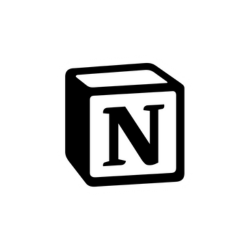
Notion AI Review
The AI workspace that works for you.
At-a-Glance
Pricing Model: Subscription
Starting Price: $12/ member / month
Free Plan: Yes.
Free Trial: Yes.
Notion AI Quick Takes
Notion AI blends AI writing, summarizing, and brainstorming right inside your workspace. Perfect for Notion users who want built-in automation, though free use is limited.
Notion AI Pros & Cons
What to Watch Out For
-
2025 unbundling: AI sold as modular add‑ons
As of Sep 2025, Notion markets separate, per‑seat AI apps with distinct prices (e.g., AI Search $35/user, AI Meeting Notes $18, AI Writing Assistant $20, AI Chatbot $20, AI Email App $30). In Jun 2025, third‑party pricing trackers noted AI access bundled on Business while legacy AI add‑on customers were grandfathered at $8–10/user/month, with Free/Plus limited to a one‑time 20‑response trial.
Why it Matters
Pricing and packaging changed in 2025, so budgets based on older AI add‑on assumptions may be off. Teams should verify which AI modules they actually need and whether any grandfathered rates apply before renewing or scaling seats.
-
Database Q&A often misses schema‑specific answers
As of Oct 2025, user reports indicate Notion AI can be unreliable when asked to find items inside a specific Notion database or respect property‑level filters via natural‑language Q&A, even if page‑level summarization works well. Expect inconsistent recall when the prompt references a particular database name or field constraints.
Why it Matters
If your workflows depend on precise retrieval from structured databases, plan for manual filters or structured views and validate AI‑generated answers before acting on them.
-
Notion 3.0 pivots to AI agents and standalone AI apps
Reviews in Sep 2025 highlight Notion 3.0’s introduction of AI agents and a shift toward discrete AI apps (e.g., Chatbot, Email, Search) rather than a single bundled assistant. Notion’s own product pages reflect this direction with separate AI SKUs and pricing.
Why it Matters
This signals deeper automation potential but also that future capabilities may be packaged and priced separately—important for both roadmap alignment and total cost planning.
These insights are drawn from publicly available reviews and user feedback to highlight potential issues real users have reported.
Honest Notion AI Review – What You Need to Know Before You Start
Notion AI Review: Notion AI is an AI-powered writing and productivity assistant built directly into the Notion workspace platform. It helps users generate content, summarize notes, translate text, and refine their writing without leaving Notion. By leveraging advanced language models, Notion AI can draft documents, create lists or outlines, brainstorm ideas, and even answer questions based on your notes and knowledge base. It’s designed to save time on everyday writing tasks and enhance creativity, all while working seamlessly in the same space where you organize your projects and collaborate with your team.
Notion AI Pricing Details
Pricing Details
Notion AI Features & Capabilities
Inside Notion AI
Final Verdict, Notion AI Review
Notion AI is a game-changer for those who already love Notion’s all-in-one workspace. After extensive testing, our editors found that Notion AI adds a lot of value, especially in the realms of quick content generation and summarization. The convenience of having AI right where our notes and tasks live is unparalleled – no more copy-pasting between different apps. The writing assistance feels like having an editor on call 24/7; we were impressed by how well it could refine a clunky paragraph or generate a decent first draft from a simple prompt. Features like the Q&A search have the potential to fundamentally change how teams retrieve information (“just ask the wiki” becomes a reality). We also appreciate that Notion is continually updating the AI with new capabilities (the meeting notes and database autofill features are quite handy for productivity). That said, Notion AI isn’t without its limits. The fact that it’s locked behind a pricier plan after the trial means not everyone will be able to dive into full use unless they invest. We noticed that casual Notion users might hesitate to pay extra solely for AI. Also, while the AI is good, it’s not infallible – it occasionally gives a response that misses the mark or needs heavy editing (which is normal for AI, but users should be aware). In comparison to specialized AI copywriting tools, Notion AI might feel a bit basic in terms of tone control or creativity, but it wins on convenience. Overall, our verdict is that Notion AI is a powerful addition to an already powerful tool. If you’re an avid Notion user, the AI will likely slot into your workflow naturally and save you time. It’s especially useful for teams that live in Notion, as it can boost collective efficiency (imagine never having to manually summarize meeting notes again!). If you’re not using Notion yet, Notion AI alone might not be a reason to jump onboard, but if you need a combined solution for organization and AI assistance, this is one of the best integrated experiences out there. We give it high marks for integration, versatility, and continuous improvement, with just a few points off for its cost and the typical AI quirks.





